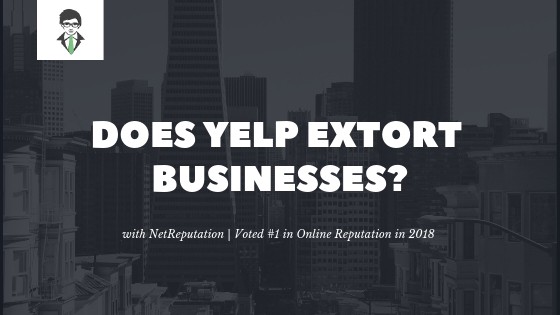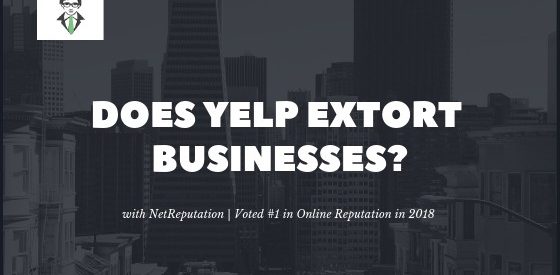 Does Yelp Extort Businesses? NetReptuation Explains
Does Yelp Extort Businesses? NetReptuation Explains
IS YELP EXTORTION REAL? FIND OUT HERE
Does Yelp extortion exist? Does Yelp punish you for not advertising with them? The answer is no but you would be surprised at what some business owners noticed after they stopped or refused to advertise with the most popular review platform we to date, Yelp.
If you are a small business owner it may come as no surprise that many other businesses are struggling to gain positive reviews on Yelp. Legend has it that unless you pay a monthly premium you may never receive 5-star reviews. How true is this? Does Yelp really extort business owners to pull in more cash?
Yelp does charge a monthly premium is gives paying businesses a better chance at generating more positive reviews over another company that does not pay. Paid customers do indeed have a more pleasurable experience compared to free users.
But does this qualify as extortion? Let?s take a deeper look into Yelp?s history and past class action lawsuits they underwent with various SMBs.
INFAMOUS ?YELP EXTORTION CONSPIRACY?
We are all familiar with the popular review platform known as ?Yelp?. Based in San Francisco this mega giant has made waved over the past decade, changing the way consumers buy products online, choose a restaurant from dinner or even find someone to help them with home services.
Businesses and consultants that are listed on Yelp?s database are selected after consumers enter a keyword and a specific location. What how well does Yelp filter and sort the results? Is the number one plumber in your area actually the best or do they simply pay Yelp for better review visibility?
Yelp has been accused of extorting countless small business to the point of them nearly going out of business due to negative reviews. To make matters worse there is a section below every Yelp profile (most miss this) that is faded gray. It reads ?other reviews that are not currently recommended?. What does this even mean?
After conducting a small case study and testing it with many local businesses we have found that people who actually visit these locations and write a review may fall into the ?not recommended? category. As peculiar as this sounds we wanted to give Yelp the benefit of the doubt, but after reviewing other case studies and talking to local businesses first hand we have come to a conclusion.
Yelp selects which reviews appear they indeed manipulate reviews and that is no denying this. Example A, their ?not recommended? filter of (what Yelp considers) false or fake reviews. So even if individual shop at your store or eats at your restaurant and write a legitimate review the odds are slim to none it will stick. Unless of course, you pay Yelp for a premium listing or pay for advertising.
Per a recent call with a representative at Yelp, we asked:
?How do we generate more reviews or more specifically how do reviews stick??
Their answer was shocking,
?Well, if you pay for a premium listing your profile we include all ?not recommended? star ratings into your total average.?
We immediately hung up, granted there could have been more to their rant but that was a terrible way to start your answer to a question.
For a company that started out with honest intentions and a great online reputation management team, capable of delivering the best reviews and photos to local consumers. The tides are slowly shifting as now the company that pays the most will have the best reviews.
Read the entire story on our blog! Click here now to visit.


